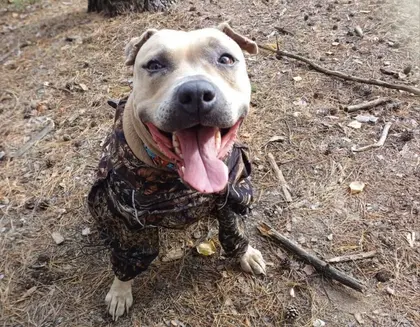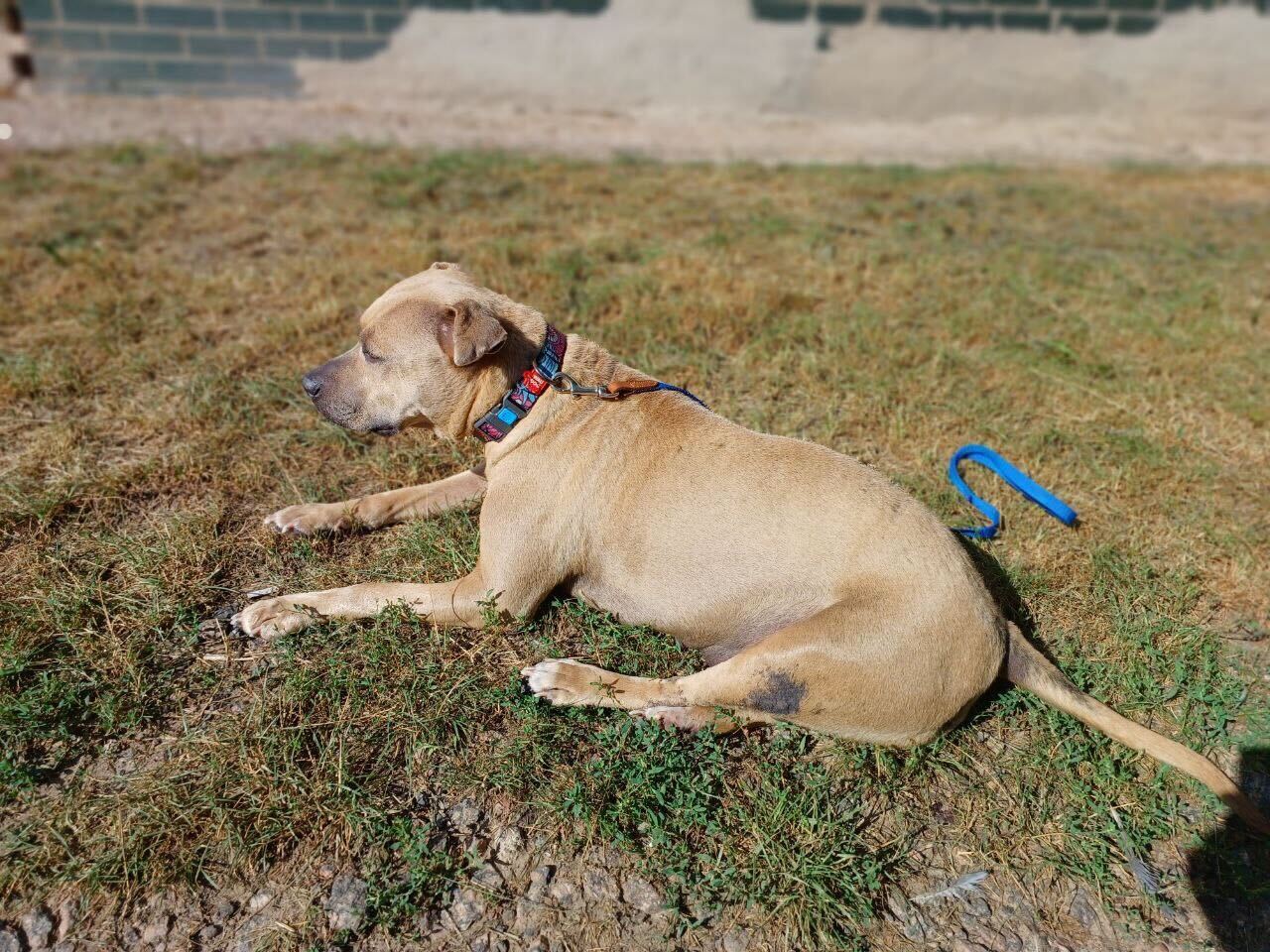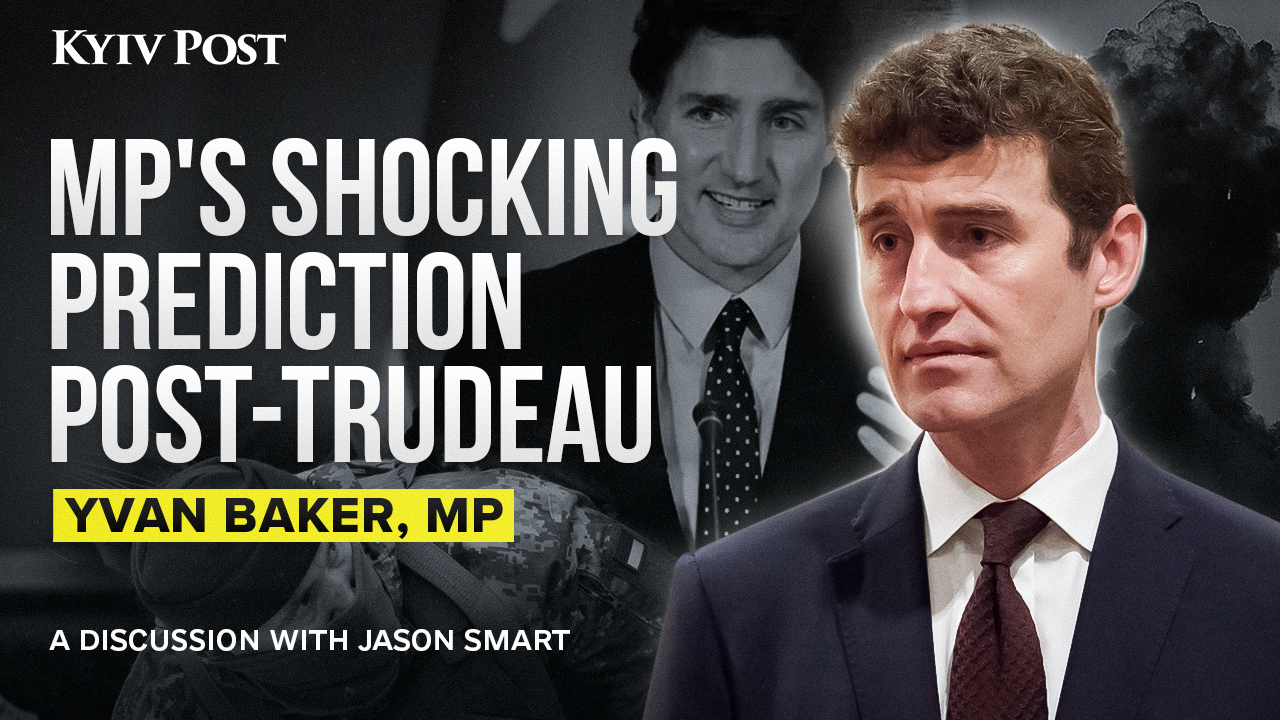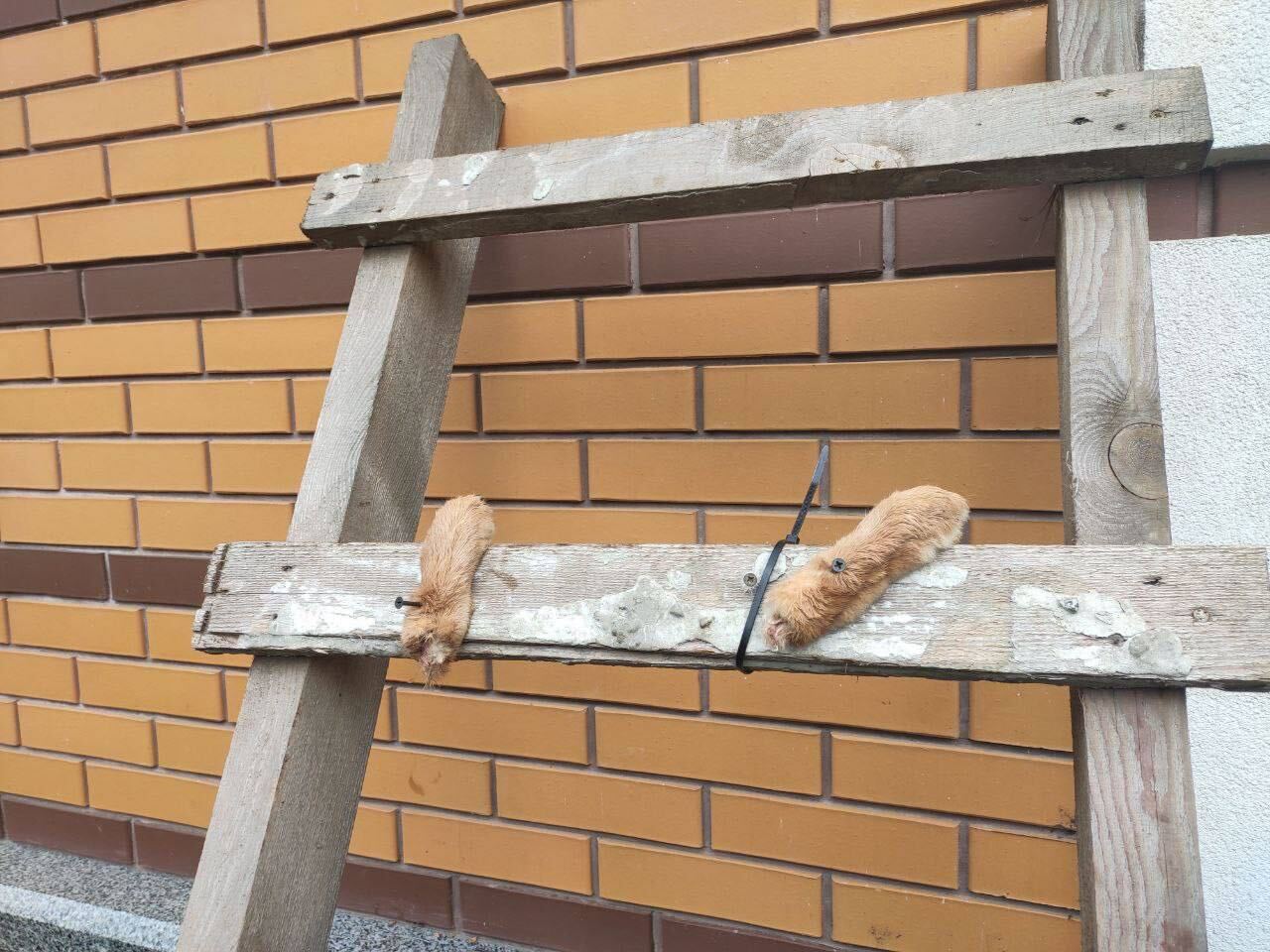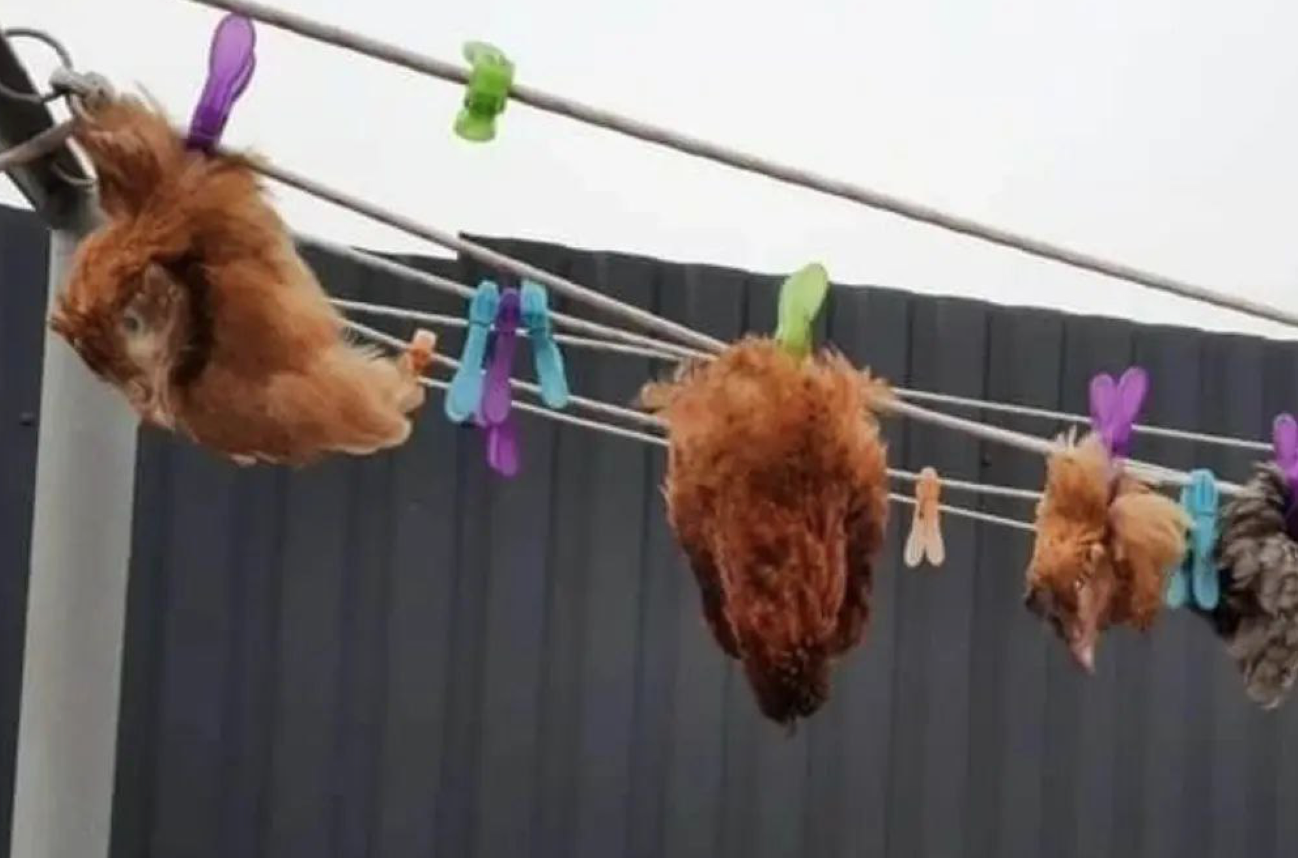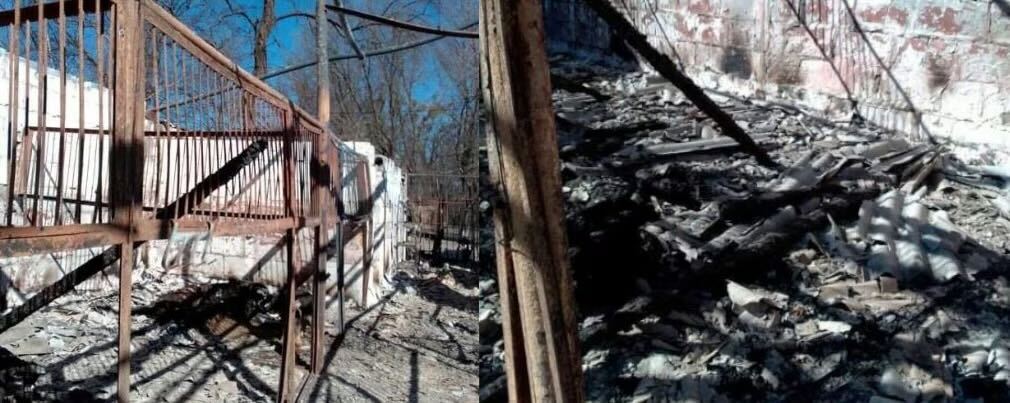Bonya, a five-year-old American Staffordshire bull terrier, is a bit of a celebrity these days. She’s the face of the Animals of War, a foundation set up in the wake of Russia’s invasion of Ukraine to help animals in the Kyiv region.
Today she lives a happy and well-fed existence, yet the story of how she came to adorn the group’s logo is anything but a cheerful tale.
JOIN US ON TELEGRAM
Follow our coverage of the war on the @Kyivpost_official.
“For fun, the Russian occupiers stuck a knife in her chest," says Oleksander Villshanovskiy, the director of Animals of War.
Abandoned by her owners in Borodyanka as they fled the invasion, Bonya was found by neighbors who treated her as best they could without any medication. They stitched up the wound using regular needle and thread, and for two months fed her with chicken feed.
Although she made a remarkable recovery, considering her wound, other health problems began to manifest. Eventually she was brought to Villshanovskiy who nursed her back to health.
“It could have been much worse for her,” says Villshanovskiy. “But it was still terrible.”
Much has been written about the humanitarian catastrophe unleashed on Ukraine by Russia’s invasion, less so about the toll it has taken on the country’s animals.
When Russian troops entered Ukraine in February it sparked an exodus of people who left with little time to plan and no idea when they would be able to return.

Ukraine’s Top Cities for Digital Service Innovations
When the bombs started falling in Kyiv, Natalia’s cat Puzik was nowhere to be found.
“In case of war, my husband and I had a clear plan – not to pack things, but only to grab my daughter and cat to go to the country,” she tells Kyiv Post.
“Puzik was always scared of even the smallest noises and would find somewhere mysterious to go and hide, and I think on Feb. 24, he did the same thing: he heard explosions, got scared and hid.”
The couple gathered their two-year-old daughter, but Puzik could not be found in the apartment.
“So I had to leave a lot of water in all the available deep plates and pour out all the food,” Natalia says. “We decided to first evacuate my daughter, and then return for Puzik.”
However, it was no longer possible to return for the cat in the following days.
Natalia eventually manage to convince a neighbor to break into their flat – they couldn’t send the keys due to the disruption in the postal service caused by the war.
“It turned out our new expensive doors are not so easy to break, not even for an experienced pro,” she says.
Eventually Puzik was found and left the flat after half a day of gentle coaxing. Now the couple jokes that the neighbor who broke into their flat to save him has become the cat’s godmother.
Puzik hasn’t fully recovered from his experience – he gets scared every time the couple puts on their shoes and from time to time he loses consciousness with bouts of nausea.
"He has a sick cat and it's been five years since veterinarians wrote him off after a series of bad tests,” Natalia says. “But he told me he wanted to see Putin die, so apparently, this is what keeps him going.”
The volunteers near the front
Away from the capital and close to the front lines, volunteers like Snezhana Bugrik take great risks to help animals trying to survive in destroyed and abandoned towns and villages in Lyman, in the Donetsk region.
“As soon as they see the car they come running, hoping they have not been forgotten,” she tells Kyiv Post.
“They jump as best they can – some on three legs, some blind, deaf or shell-shocked from the bombardments.”
Seeing suffering on such a scale takes its toll on Bugrik, but she and her team do her best to provide what help they can.
“I haven't met a single healthy animal,” she says. “Viruses have affected all of them. Most of these animals will not survive the winter. All of them look into your eyes with hope for salvation, but you can't save them all.
“We try not to cry and leave food at every stop.”
Mistreatment by Russians
Compounding the situation in the once-occupied areas of Ukraine is the Russians’ mistreatment of animals.
Russian troops have been heard in intercepted phone calls describing how they ate dogs, gunned them down with their owners, and even burned 30 horses alive by setting fire to their stables.
Pictures of dogs’ paws nailed to fences and chickens’ heads on washing lines also surfaced from areas the Russians left.
When retreating from the Kyiv region at the end of March, the country’s troops also destroyed a farm.
"The orcs left us, shot all the sheep and goats. There was only Amber the goat left. No words, no curses, no sympathy,” the farm owners said.
“I can understand if you kill for food, but for fun. Only scum do this.”
You can also support the rescue of our animals and pets via PayPal [email protected]. Or to the Monobank card 5358380880240398 or PrivatBank for the purpose of "charitable assistance" via IBAN: UA693052990000026002036209188.
You can also highlight the text and press Ctrl + Enter


